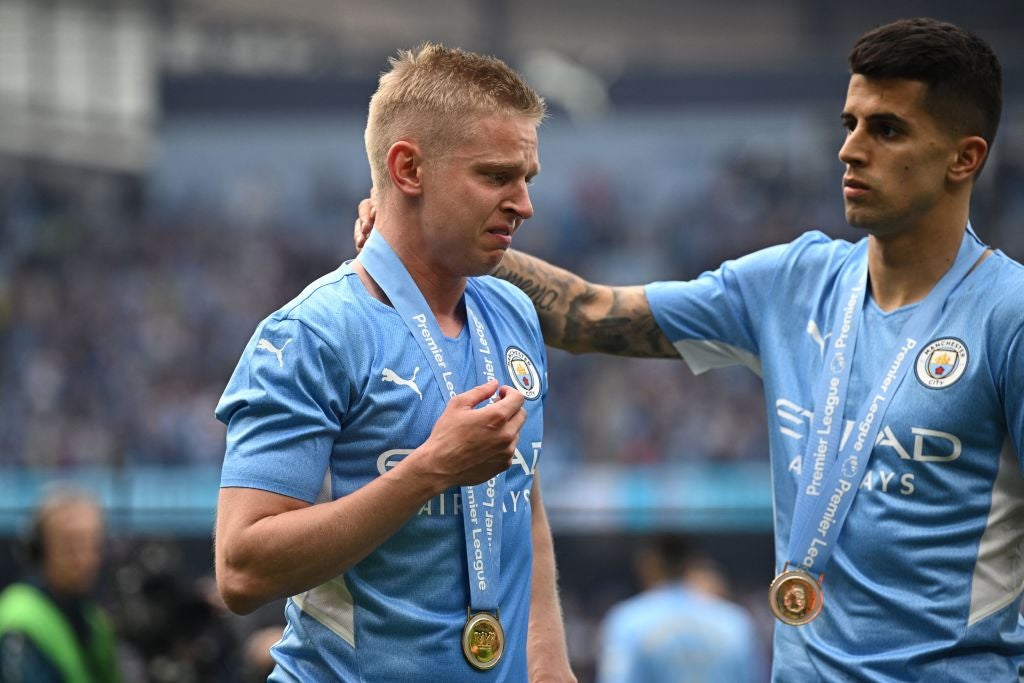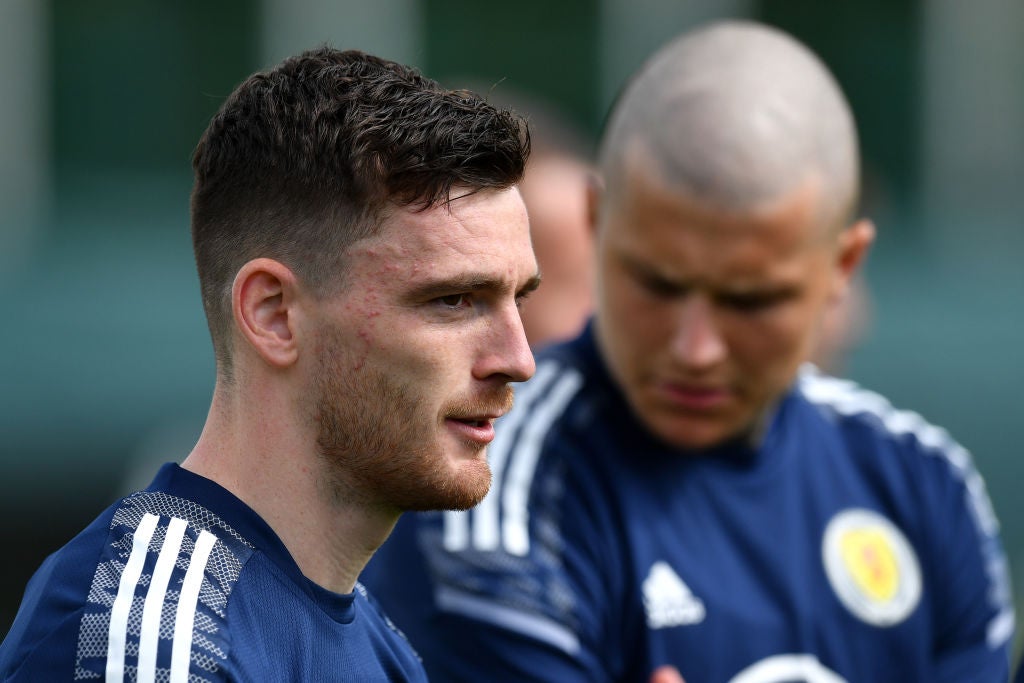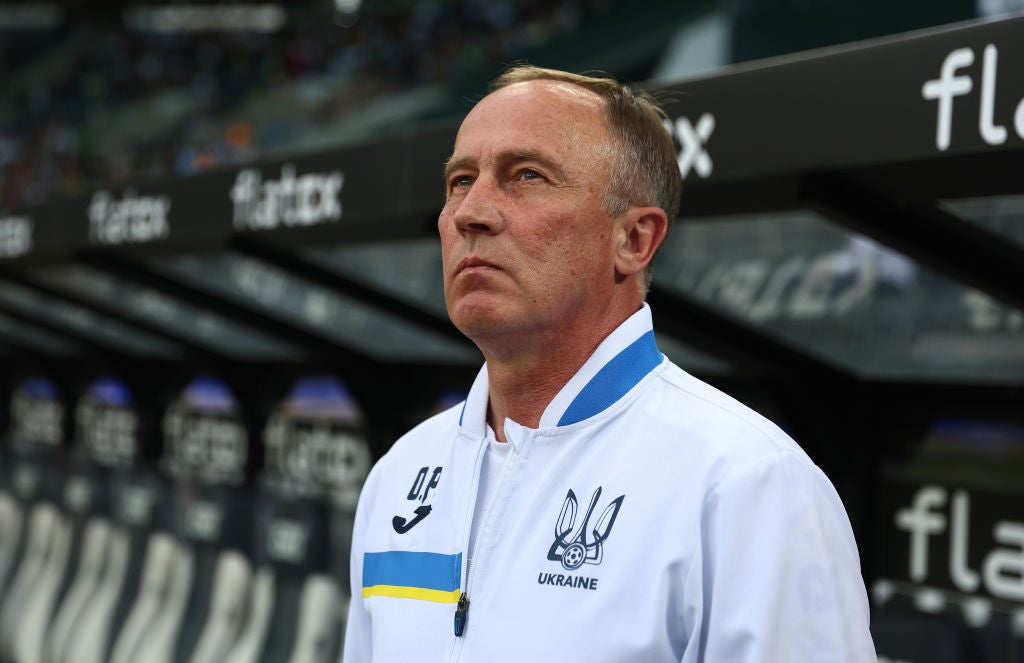
“If it was any other country, I would probably want them to win,” the Scotland captain Andy Robertson grinned ahead of tonight’s World Cup semi-final play-off with Ukraine, “but unfortunately they’re playing against my country and we have to stand in their way.”
There will be a balancing of emotions at play at Hampden this evening, coming into a match that a few months ago already carried huge significance but has now developed into something far larger. As Robertson explained while navigating the lines between both sides, Scotland will welcome Ukraine with open arms on what is set to be an emotional occasion, as the country plays its first competitive fixture since it was invaded by Russia three months ago, but they will need to be ready for a contest as well.
There is a place in Qatar on the line, after all, as Scotland sense their best opportunity in a generation to end their 24-year wait for an appearance at a men’s World Cup. The Tartan Army will be ready, not just in preparation for what is set to be an outpouring of support for Ukraine, but to roar their team into Sunday’s play-off final against Wales. Perspective, however, is never far away. “There will be an incredible atmosphere at Hampden,” the Ukraine head coach Oleksandr Petrakov admitted in the build-up to his team’s match, “but after rockets and bombs, we are not afraid of anything.”
Every player in the Ukraine team will have their own stories to tell, of families and relatives crowded into shelters, or fleeing war-torn cities, to go along with the horrors the world has seen unfold in Kyiv, Mariupol and Bucha. It has been their reality for the past three months and since this match was postponed back in March. “We think about it every day,” the midfielder Oleksandr Pikhalyonok told Ukrainian media this week. “We read the news. We call relatives. We are aware of everything that is happening.”
In Ukraine, the domestic leagues were stopped when the Russian military advanced under the orders of Vladimir Putin. On 24 February in Kyiv, the defender Mykola Matvienko was woken at 5am to the sound of explosions outside his house and rushed with his wife and daughter to find shelter underground. Serhiy Sydorchuk, another player who was based in Kyiv, said it was the worst night of his life. His wife was nine months pregnant and after a children’s hospital in the city was shelled they managed to escape to relatives in Romania.

In England, Manchester City’s Oleksandr Zinchenko, Everton’s Vitaliy Mykolenko and West Ham’s Andriy Yarmolenko were able to continue playing, despite the uncertainty back home. They all had emotional moments on the pitch during the season’s run-in but carried themselves exceptionally in incomprehensibly challenging circumstances. They, along with Atalanta’s Ruslan Malinovskyi and Benfica’s Roman Yaremchuk, are some of the few in the squad to have played regular football since March, which adds to the scale of the task Ukraine must overcome in order to qualify for the World Cup.
“Maybe, for a few seconds, we can give Ukraine a reason to smile,” Zinchencko has said, and it is fitting that at Hampden the team will return to the scene of their victory over Sweden at Euro 2020 that secured their passage to the quarter-finals. That was a different source of pride, at a drastically different time. In a sign of how much has changed, Oleksandr Zubkov, the forward who scored Ukraine’s winner in that match, has since auctioned his jersey to raise funds for the Ukrainian army.
Scotland’s challenge is to put the emotion to one side. The Tartan Army will be encouraged to join in with the Ukraine national anthem – with the words displayed phonetically on the big screens inside Hampden – but once the match gets under way there is too much on the line for Steve Clarke’s side to be sentimental.

After ending their wait for an appearance at a major tournament by reaching the Euro 2020 finals, Scotland’s summer fling came to an end after just three games but left a desire for more. It had to be the start of something under Clarke, rather than the end, and the experience of qualifying and then playing in those group stage fixtures will be invaluable now and all part of the journey Scotland have been on under Clarke in the past 18 months. The squad has grown together and with the fans fully onside they will play their part in creating a ferocious atmosphere.
Scotland have perhaps not had a better chance since France 1998 to qualify. If they beat Ukraine, Wales will wait in the play-off final on Sunday. It was a favourable draw and now they must seize it in front of a full house at Hampden, after experiencing a form of stage fright in their two reduced-capacity home games at the Euros. During the same tournament, Ukraine showed in their run to the last eight that these are stylistically two quite similar teams. Solid but a touch unspectacular, with a tactical versatility best suited to countering the opponent’s strengths.

In the end, though, a discussion of tactics and systems feels out of place ahead of such a night. While the match may help decide who goes to the World Cup, it does not restore what has been lost. “I can’t enjoy life as before,” Matvienko said in an interview with his club Shakhtar Donetsk in March. “We will never be the same. The war will stay with us forever.” A place in the World Cup cannot make up for the horrors of conflict, but it can provide for a moment hope and pride. If not that, what else are we left with?
That was what the Ukrainian military believed when Petrakov, the 64-year-old head coach, demanded to be allowed to leave his post in order to take up arms against the invaders. “There is no anger, only hatred,” Petrakov said in response to what has been done to his country by the Russian forces. But Petrakov was turned away, and instead was given a simple message: “Take us to the World Cup instead.”







